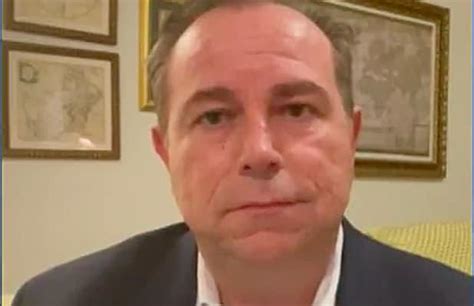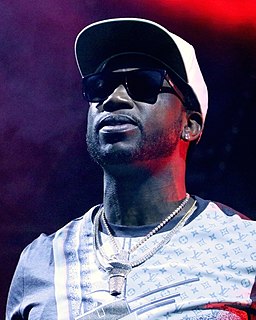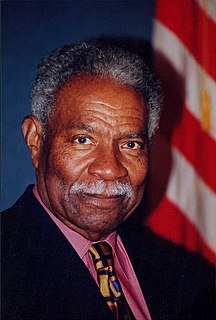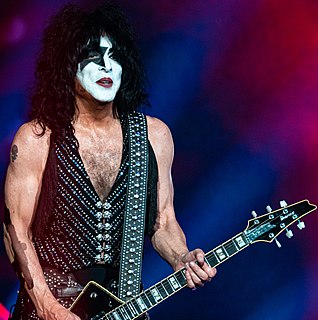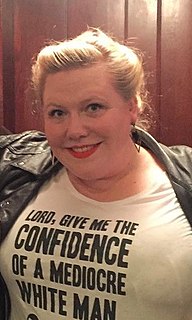Top 973 Controversial Topics Quotes & Sayings - Page 17
Explore popular Controversial Topics quotes.
Last updated on December 19, 2024.
Let's put it in perspective at the United States Supreme Court, which hears maybe 60 cases a year, most of the cases are resolved without much dispute. The 10 or 15 that are controversial we all know about, and we hear about. The federal courts hear just a tiny sliver of the cases that go to court in this country. Most of the cases are in the state courts. And most legal issues never go to court. So, the legal system is actually not in jeopardy. At the same time, access to law is in jeopardy.
Donald Trump moves in two parallel tracks at the same time. There's the controversial political guy that's always out there with his tweets. He comes from a showbiz background, as well as a very successful career in finance and real estate. He loves sometimes the controversy more than some people - the press thinks they're totally aggravating him. He sometimes thrives on the public controversy and the hitting back. Meanwhile, he's very results-oriented. He knows that the American people are going to judge him by his performance on the economy, on jobs, on national security.
A lot of my books deal with very controversial issues that most people often don't want to talk about, issues that, in my country, are more likely to get put under the carpet than get discussed. And when you talk about moral conundrums, about shades of gray, what you're doing is asking the people who want the world to be black and white to realize instead that maybe it's all right if it isn't. I know you'll learn something picking up my books, but my goal as a writer is not to teach you but to make you ask more questions.
Obama has already demonstrated an extraordinary ability to change the limits of what one can say publicly. His greatest achievement up to now is that, in his refined non-provocative way, he has introduced into public speech topics which had hitherto been de facto unsayable: the continuing importance of race in politics, the positive role of atheists in public life, the necessity to talk with "enemies" like Iran or Hamas, and so on. This is just what US politics needs today more than anything, if it is to break out of its gridlock: new words which will change the way we think and act.
I value my core fans I got from the hood. I think a lot of things might hit home with them, like problems with the law or how I talk about partying - all the different topics I cover when I do rap. But I also value my suburban fans who take a liking to my music and like the way I change cadences. I appreciate all of them cause both types of fans push me to record all the time, both push me to give my best when I do a show. Both push me to be the best rapper and not just do it as a hobby, but do it as a job and take it seriously and put pride in it.
Here - at this final hour, Harlem has come to bid farewell to one of its brightest hopes - extinguished now, and gone from us forever.... Many will ask what Harlem finds to honor in this stormy, controversial and bold young captain - and we will smile. ...We will answer and say unto them, ‘Did you ever talk to Brother Malcolm? Did you ever really listen to him? ...For if you did you would know him. And if you knew him you would know why we must honor him.'
Our role as artist is more controversial now because there are those, claiming the absolute authority of religion, who detest much of our work as much as they detest most of our politics. Instead of rationally debating subjects like abortion or gay rights, they condemn as immoral those who favor choice and tolerance. They disown their own dark side and magnify everyone else's until, at the extreme, doctors are murdered in the name of protecting life. I wonder, who is this God they invoke, who is so petty and mean? Is God really against gun control and food stamps for poor children?
Music critics are, for the most part, bitter people who are intent at dragging people down for being successful at what they want to do, which is probably music. The oddity of being a critic is: You don't get a diploma, you just decide you're a critic. If someone listens to your opinion rather than their own, it's their mistake. Any critic's top 10, any year, it's something controversial or something that will make them look hipper-than-thou. The whole critic game, we've never played.
You believe in equality for women and men. And that means that, not only do you believe in it kind of in the abstract but you actively think people should seek it when it comes to the way you hire people, the way you compensate people, the way you treat women and men in professional settings and school, whatever the case, giving them equal opportunities without disadvantaging them because of their, for the fact that they're women. And to me that's what it means for me to be a feminist. I don't think it's that controversial.
Sometimes I feel fashion is not open-minded enough. We need to push the old crowd to believe in what I believe, in the new generation. I remember when I started, my campaigns and and how I connected my love for music with fashion were a tiny bit controversial because they were like, 'How can you bring hip-hop or music into a luxury world?' or 'How you can be so connected to digital and use social media in luxury world?' Now it's changed, obviously, for the best, but I still think that we could push a bit more.
Anecdote: In a controversial way, Comedian and actor Bill Cosby sought to teach his son the pain of being lied to. Convinced his son had been dishonest regarding an issue, Cosby promised that if he told him the truth, he would not hit him. When his son did confess, Cosby did hit him. Seeing his son's shock and hurt, Cosby said he hoped this lesson had deepened his understanding of the anguish generated by a sense betrayal.
I'm a deeply privileged person. I have a safe, comfortable life, and there's very little at risk for me. I'm not going to get disowned by my family for talking about having an abortion, and I'm not risking my job or homelessness by saying something controversial that my employer might not like. I have this gift of stability and it feels obligatory to use that to make the world better in whatever small ways I can. It's incredibly fulfilling. Even helping one person feel a little bit better is really important to me and makes me feel like my life means something.
Because my graduate academic training at law school was not one that included most of the intellectual traditions I find useful for understanding the conditions and problems that most concern me - anti-colonial theories, Foucault, critical disability studies, prison studies and the like are rarely seen in standard US Law School curricula, where students are still fighting on many campuses to get a single class on race or poverty offered - I developed most of my thinking about these topics through activist reading groups and collaborative writing projects with other activist scholars.

